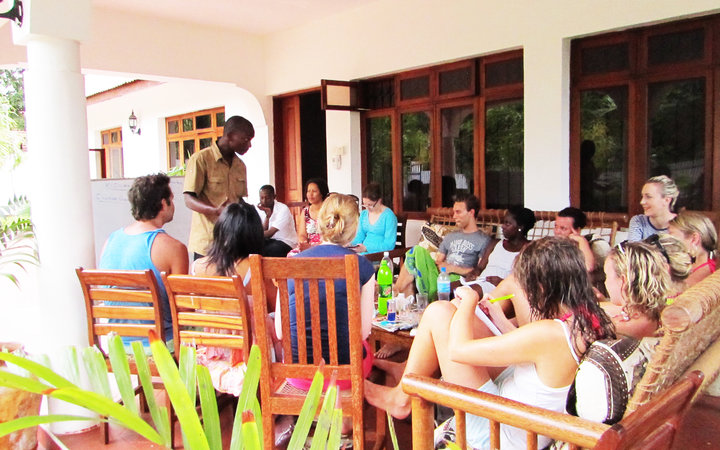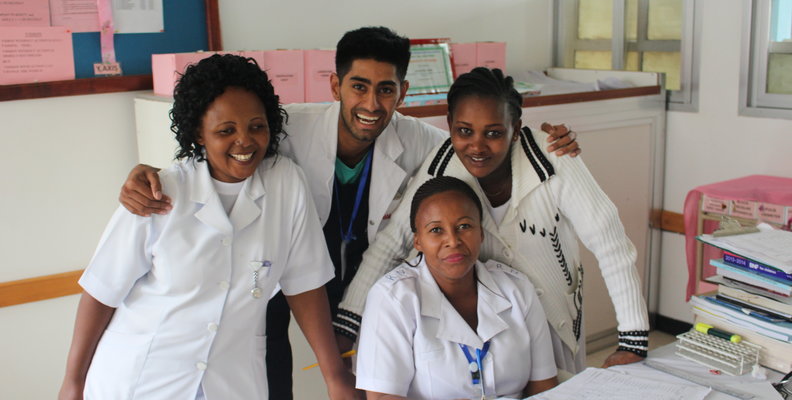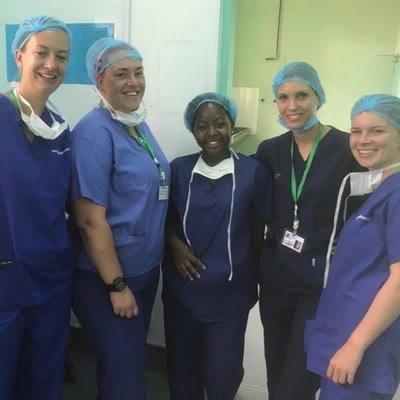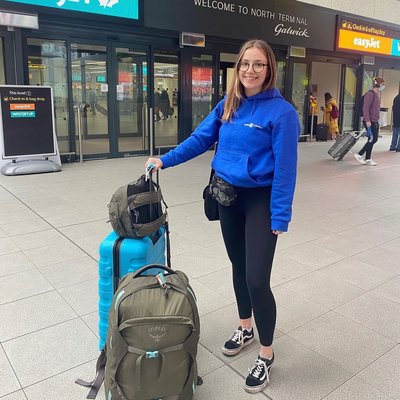Travelling abroad to experience a new culture and healthcare system can be both exciting and daunting, especially when you don’t speak the language.
With years of experience tailoring overseas healthcare elective placements, we’ve developed the ultimate in-country language support and will help you prepare to fully embrace the local lingo long before you travel.
From language guides to hiring English-speaking local staff, we’ve covered all the bases.
Learning with us
Language guides
Once you’ve registered with us, you’ll get access to MyTrip — our online placement planning portal. Here you can see lots of personalised details about your placement. We’ve also gone the extra mile and created comprehensive written language guides and accompanying videos for the destination you’re travelling to.
Language teachers
To give you an even deeper practical understanding of the local language and customs, a language teacher will provide twice-weekly language lessons in our Work the World houses throughout the duration of your placement. This is also a great opportunity to get to know your new housemates, pick up some relevant phrases and keep up the momentum of language learning!
Local, English-speaking teams
We’re proud of the fact that we only employ locals to host our students at the Work the World house; this means that they have unparalleled local knowledge as well as strong relationships with our partner hospitals. All our in-country staff speak excellent English, meaning you won’t have to worry about anything getting lost in translation. From chatting about your day on placement, to providing recommendations of where to get the best coffee in town, our in-country teams are happy to help – even if you do need something translated!
Learning in the hospital
Levels of English in the hospitals
Most patients in our partner hospitals and clinics won’t speak English, so it’s vital you learn some useful phrases of the native tongue. It also shows commitment to your placement, your interest in the culture and that you’ve made an effort to be polite and converse, even on a basic level, with your new peers and supervisors.
Through interacting with local patients, you’ll also gain valuable skills in nonverbal communications and visual diagnosis, which will be useful when at home, too. Many of our students report this to be one of the best learning opportunities whilst on placement!
Being supervised
In the hospitals and clinics we partner with, there are often local students studying and on placement just like you. They will most likely have a good level of English, and meeting them is a great chance for you to learn more about the culture, healthcare learnings and community that’s hosting you.
Many senior consultants in our partner hospitals are also required to study in English-speaking countries as part of their learning, so again, they are likely to have a good level of English.
Patient notes
As a general rule, it’s unlikely you’ll have to deal with any patient notes that aren’t in English. Whilst, again, we can’t promise that all notes will be in English, you’ll be fully supervised and so will have someone to help on the occasion you come across notes in a language other than English.
Independent learning
With over ten years of supporting students on their overseas healthcare placements, we like to think we know a thing or two about learning languages. Below are some tips and tricks we’ve picked up over this time, from both staff and students, to help you make the most of the new culture and the connections you’ll be gaining on your placement.
Smartphone and tablet apps
A great way to squeeze in some additional language learning while you’re busy studying is to download a few phone apps to use in your downtime. We prefer Duolingo because it's cost-effective and fun to use.
Having a digital language teacher at your fingertips means that there’s no excuse for not having enough time. Waiting for the bus? Spend ten minutes learning Swahili greetings. A queue at the coffee shop? The perfect time to brush up on Sinhalese words. Dinner in the oven? You could use that time to finally crack 1-10 in Nepalese.
There are also many free online resources you can download, print, and keep in your bag or pocket for similar situations. There may even be some handy mini language guides at your university library.

Learning from movies or TV
Learn a language whilst watching TV? Sounds too good to be true! Admittedly, you’re probably not going to become fluent by watching cartoons in Spanish, however if you want some passive and entertaining learning after a full day of studying, why not try watching your favourite movie or TV show with subtitles or dubbed in the language you’re trying to learn (we recommend the latter, which is offered by many modern streaming services). You’ll be surprised how many words you might be able to suss out, and it will help with your pronunciation and accent, too.
Podcasts
There are loads of language-based podcasts out there! Much like learning apps, podcasts are perfect for learning on the go or when you’re short on time. Try a beginner's podcast when you’re at the gym or walking to the library; there are loads out there to try, with many different styles of teaching.
Practise
That old adage: practise makes perfect. The single best thing you can do to learn and retain a language is practise, practise, practise! Ask friends to test you on key phrases, or search online for quizzes. A few weeks of practising could make all the difference when you’re on the ward overseas!
Read more about our elective placements abroad.









